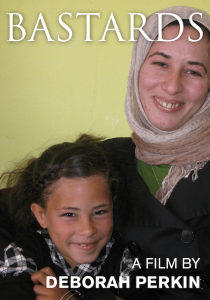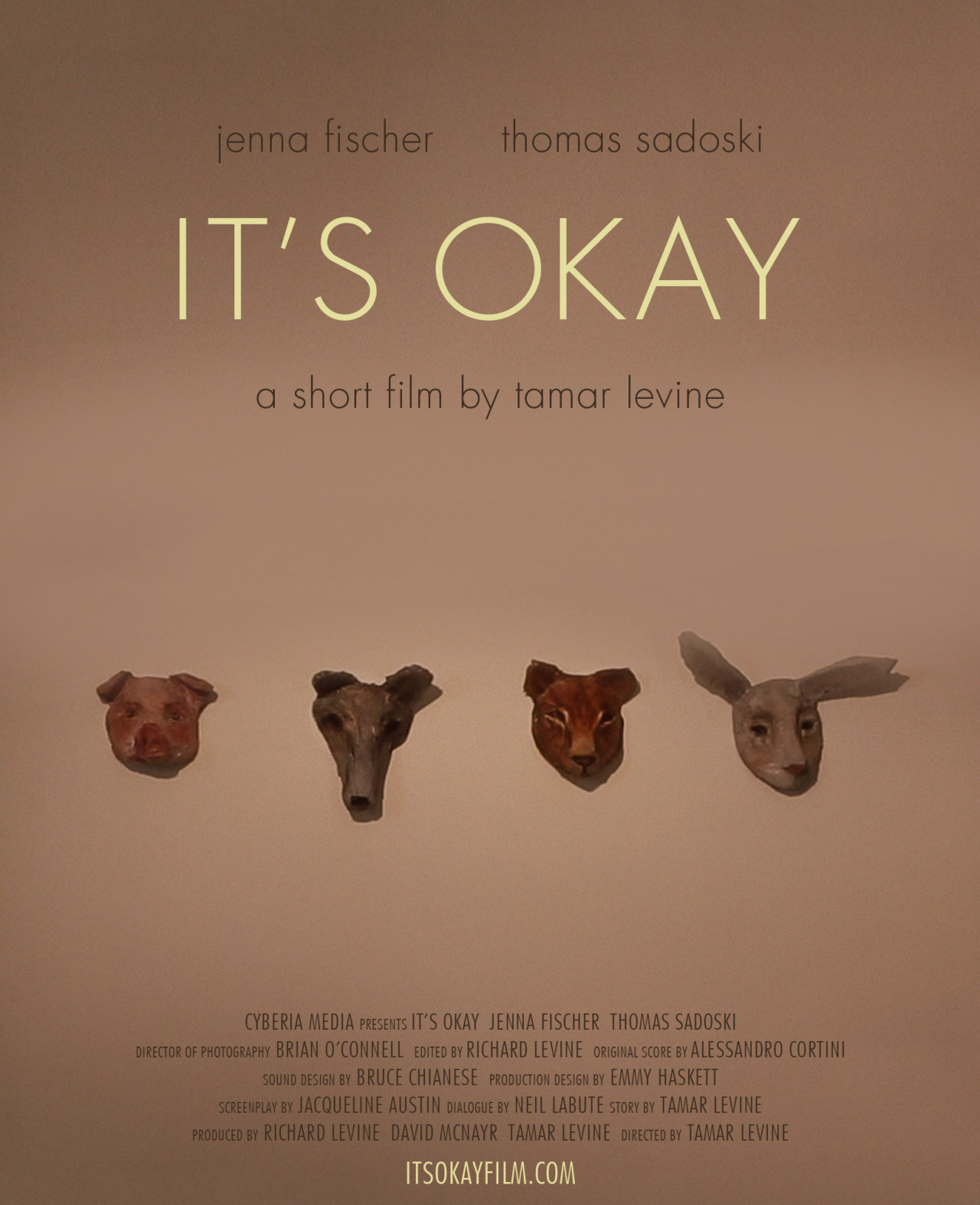![]()
Carry On Receives Best of the Festival Award Whisker Receives Future Filmmaker Award; Dragula, Showfolk and Bendik & the Monster Receive Audience Awards Joanna, 90 Days and Tyres Each Receive 2 Awards.
PALM SPRINGS, CA (June 22, 2014) – Celebrating its 20th birthday, the 2014 Palm Springs International ShortFest, the largest short film festival and only short film market in North America, announced its Festival award winners on Sunday, June 22, 2014. 330 short films screened throughout the Festival along with more than 3,000 filmmaker submissions available in the film market. More than $115,000 in prizes, including $21,000 in cash awards, were awarded in 21 categories. Held from June 17-23, 2014, the Festival had another record-breaking year in attendance for ticket buyers, filmmakers and film industry delegates.
“The 2014 Palm Springs ShortFest far surpassed all of our expectations,” said Festival Director Kathleen McInnis. “Our audience, filmmaker and industry attendance all soared, as did the striking talent we were able to showcase during our 20th anniversary year. Well over 800 filmmaker and industry guests made our Filmmaker Forums one of the most dynamic we have ever had, and most of the screenings had all filmmakers in attendance—a great bonus for our audience who love their q/a sessions! Filmmakers brought themselves here from 37 countries, the most we have ever had, which speaks directly to the success of our targeted outreach to world cinema. We couldn’t be happier to have hosted this year’s class of SHORTFEST 2014—they are extraordinary!”
The 2014 Palm Springs International ShortFest award winners are:
JURY AWARDS:
BEST OF FESTIVAL AWARD – Winner received $2,000 cash prize, camera package valued at $10,000 courtesy of Radiant Images, and Final Cut Pro X courtesy of Apple Computer. The winner of this award may be eligible to submit their film to the Academy of Motion Picture Arts and Sciences for Oscar consideration.
Carry On (China), Yatao Li. During the brutal withdrawal of Japanese forces at the end of WWII, a Chinese father does whatever he can to save his family.
GREATER PALM SPRINGS CONVENTION & VISITORS BUREAU GRAND JURY AWARD – Winner received $5,000 cash prize courtesy of the Greater Palm Springs Convention & Visitors Bureau.
Joanna (Poland), Aneta Kopacz. An intimate portrayal of a young mother who must contemplate what she wants to leave behind for her toddler son and husband.
FUTURE FILMMAKER AWARD – Winner received a $2,000 cash prize.
Whisker (New Zealand), Steven Saussey. A homeless hobo wants to feed his dog but has nothing to give him, until he notices a ‘beard growing contest’ at a local pub that presents a way to get the dog what he needs...
PANAVISION BEST NORTH AMERICAN SHORT – Camera package valued at $60,000 courtesy of Panavision.
90 Days (9O天) (Canada/Hong Kong), Timothy Yeung. Armed with a 90-day tourist visa, a young Chinese girl arrives in Hong Kong. She is quickly led by her guide to the big city’s seedy back alleys, where she is prepared to work as a prostitute in a series of red light hotels with the hopes of earning money for her family.
AUDIENCE AWARDS:
BEST LIVE ACTION SHORT: Dragula (USA), Frank Meli. A young guy with an all-American father, jock older brother and an understanding mother (Missi Pyle), comes to terms with his inner voice when he performs a drag number at the high school talent show, after being taken under the wing of a famous old drag performer (Barry Bostwick) in a gay bar.
Runner-up – Young Americans (USA), Kevin Lacy
BEST DOCUMENTARY SHORT: Showfolk (USA), Ned McNeilage. Showbiz vets residing at the Motion Picture & Television Fund Home share wisdom and inspiration (and a little song and dance) garnered over lifetimes in the business.
Runner-up – The War Photographers (USA), Steven Kochones.
BEST ANIMATION SHORT: Bendik & the Monster (Norway), Frank Mosvold. A monster dreams of a being a cabaret singer. Bendik dreams of a better relationship with his mom and her boyfriend. The two of them can hardly dream of what will happen if they work together.
Runner-up – The Gulf (Canada), Carl Beauchemin, Thomas Chrétien, David Forest
SHORTFEST ONLINE AUDIENE AWARD: Juliet (Australia), Martin Høgberget. Obsessed with Shakespeare and Alex, the hottest guy in school playing Romeo in the school play, Brooke is convinced the way to her Romeo’s heart is to star opposite him in the school play…and she will do anything to get the part.
JURY CATEGORY AWARDS:
Awards in the non-student and student categories were selected by ShortFest jury members Nigel Daly (Screen International), Steven Gaydos (Variety) and Katie Holly (Blinder Films). All first place winners in the non-student categories received a cash award of $2,000. First place winners in the non-student Animation and Live Action categories may be eligible for Academy Awards consideration. Second place recipients received a $500 cash prize.
BEST AnimatION short: First Place ($2,000) – Los Rosales (Italy), Daniel Ferreira. A humble and solitary robot is stuck in a repetitive life, turning wheels and cogs all day to produce his only means of survival—until he finds a way to feed his heart instead.
Second Place ($500) – Dwarf Giant (Nain Geant) (France/Switzerland), Fabienne Giezendanner.
BEST Live Action short over 15 minutes.
First Place ($2,000) – That Music (Esa Música) (Colombia), Darío Vejarano. Omar, a construction worker, receives a recorded message on his cell phone from an unknown caller. Even though nobody speaks in the message, he vaguely recognizes a melody amidst the noise of the recording. From that moment on, he starts a search to find out the name of the song in an attempt to remember the life he once led.
Second Place ($500) – The Nostalgist (UK), Giacomo Cimini.
BEST Live Action short 15 MINUTES AND UNDER:
First Place ($2,000) – The Chicken (Germany/Croatia), Una Gunjak. On her sixth birthday, Selma receives a chicken from her dad, a soldier away at the front, but her joy is quickly squashed when she realizes her mother has other plans for the new pet.
Second Place ($500) – Oranges (Naranjas) (Colombia), Iván D. Gaona
Honorable Mention – Through the Breaking Glass (A través del espejo) (Spain), Iván Mena
BEST Documentary short:
First Place ($2,000) – Joanna (Poland), Aneta Kopacz. An intimate portrayal of a young mother who must contemplate what she wants to leave behind for her toddler son and husband.
Second Place ($500) –The Dogwalker (Hundvakten) (Sweden), Caroline Ingvarsson
Honorable Mention – A Paradise (Un Paraiso) (Cuba/UK), Jayisha Patel
STUDENT CATEGORIES: All first place winners in these categories received a 1-year download membership to Videoblocks, AudioBlocks or GraphicStock.
BEST STUDENT ANIMATION:
First Place – Mend and Make Do (UK), Bexie Bush
A woman’s memories of her youth, love and family life come alive through everyday household objects.
Second Place – The Little Cousteau (Maly Cousteau) (Czech Republic), Jakob Kouril
BEST STUDENT Live Action short over 15 minutes
First Place – The Aftermath of the Inauguration of the Public Toilet at Kilometer 375 (Egypt), Omar El Zohairy
A mistimed sneeze at a government ceremony dedicating a new public toilet unleashes a nightmare for one civil servant in this beautifully shot dark comedy.
Second Place – Serori (Japan/Netherlands), Pedro Collantes
BEST STUDENT Live Action short 15 MINUTES AND UNDER
First Place – Siham (Lebanon/USA), Cyril Aris
A young couple struggles with impending news as they spend time at the husband’s childhood home.
Second Place – Here (UK), Colum Eastwood
BEST STUDENT DOCUMENTARY short
First Place – Tyres (Myanmar), Kyaw Myo Lwin. Amazingly gorgeous look at an unusual place and people who serendipitously create beautiful art along the way as they recycle old tires into functional fashionware.
Second Place – The Immaculates (Gil immacolati) (France), Ronny Trocker
BEST STUDENT CINEMATOGRAPHY
First Place – Aung Ko Ko (cinematographer), Tyres (Myanmar). Amazingly gorgeous look at an unusual place and people who serendipitously create beautiful art along the way as they recycle old tires into functional fashionware.
Second Place – Jeff Wong (cinematographer), 90 Days (9O天) (Canada/Hong Kong)
BEST US FILM SCHOOL STUDENT FILM AWARD - $2,000 cash prize courtesy of KQED, San Francisco.
Pigs (Singapore/USA), Laura Mohai. A boy with Down’s syndrome tries to help his grieving mother.
ADDITIONAL PRIZES:
ALEXIS AWARD FOR BEST EMERGING STUDENT FILMMAKER – The Alexis Award is selected by the Festival’s programming team and was created in honor of Alexis Echavarria, a young filmmaker, whose talent as a budding filmmaker and gift for inspiring excellence among his fellow students were cut short suddenly in 2005 at age 16. The recipient received Final Cut Pro X courtesy of Apple Computer.
First Place - Sun Can Blind (O Sol Pode Cegar) (Brazil), Toti Loureiro. Terrible consequences follow when Paulo shares with his friends that he lost his virginity to the housekeeper who lives in his home.
Runner-up - He Took His Skin Off For Me (UK), Ben Aston.
HP BRIDGING THE BORDERS AWARD PRESENTED BY CINEMA WITHOUT BORDERS - The winner received the award’s diploma and an HP ZBook Mobile Workstation with a color critical HP DreamColor display and Thunderbolt™2, an approximately $3000 value. The runner received a certificate for an upcoming Method Acting Intensive Workshop provided by The Lee Strasberg Theater and Film Institute with a value of $2000
First Place - Foad (Norway), Farzad Samsami
A street smart Moroccan boy devises a business opportunity with the desperate refugees at his seaside town in this film about dreaming of a better life.
Runner-up - Kush (India), Shubhashish Bhutiani
About Palm Springs International ShortFest- Designated by AMPAS as an award-qualifying festival, and accredited by the International Short Film Conference, the Palm Springs International ShortFest and its Short Film Market is the largest and most prominent short film showcase in North America. The Festival and its concurrent 3,000-plus Film Market continue to serve as a scouting ground for new filmmaking talent and are well attended by those in the business of buying and selling short films.
The Palm Springs International ShortFest is supported by an ever-growing number of new and longtime sponsors with local, national and international prominence. The Title Sponsor is the City of Palm Springs with Presenting Sponsors The Desert Sun and Spencer’s. Major Sponsors include: Ignition, Panavision, Stampede Post Productions, Smart Source Rentals, the Hard Rock Hotel, the Greater Palm Springs Convention & Visitor’s Bureau, KQED San Francisco, the Casting Society of America, Nickelodeon and The Australian Consulate General in Los Angeles. The official host hotel and media center is the Renaissance Palm Springs. More information is available online at www.psfilmfest.org
-OFFICIAL PSISF PRESS RELEASE-
Edited by Vanessa McMahon

 Petra Costa
Petra Costa















 Canadian director Shawney Cohen's film The Manor (2013) screened at the 16th Thessaloniki Documentary Film Festival last week.
Canadian director Shawney Cohen's film The Manor (2013) screened at the 16th Thessaloniki Documentary Film Festival last week. Shawney Cohen
Shawney Cohen Anastasia Christoforidou's short film doc 'The Phantasmagoria of Defeat' (2013) screened at the 16th annual Thessaloniki Doc Fest.
Anastasia Christoforidou's short film doc 'The Phantasmagoria of Defeat' (2013) screened at the 16th annual Thessaloniki Doc Fest.







 Claus Drexel
Claus Drexel
 What would you do if you had a lot of money, exquisite taste and a talent for taking pictures of nude men? Well, in Angela Christlieb's film NAKED OPERA (2013), she offers us a peak inside the world of someone who lives just so. Meet Marc. He is a unique and very wealthy man from Luxembourg who believes himself to be a real life Don Giovanni. Marc spends all his money and time in the effort to create his existence modeled after the opera while traveling all over the world to see Don Giovanni performances. He lives a lavish life surrounded by beautiful young men while staying in the world's most luxurious hotels eating and drinking only the finest of gourmet food and wine. But there is a great sadness in Marc's seemingly rich life.
What would you do if you had a lot of money, exquisite taste and a talent for taking pictures of nude men? Well, in Angela Christlieb's film NAKED OPERA (2013), she offers us a peak inside the world of someone who lives just so. Meet Marc. He is a unique and very wealthy man from Luxembourg who believes himself to be a real life Don Giovanni. Marc spends all his money and time in the effort to create his existence modeled after the opera while traveling all over the world to see Don Giovanni performances. He lives a lavish life surrounded by beautiful young men while staying in the world's most luxurious hotels eating and drinking only the finest of gourmet food and wine. But there is a great sadness in Marc's seemingly rich life.









